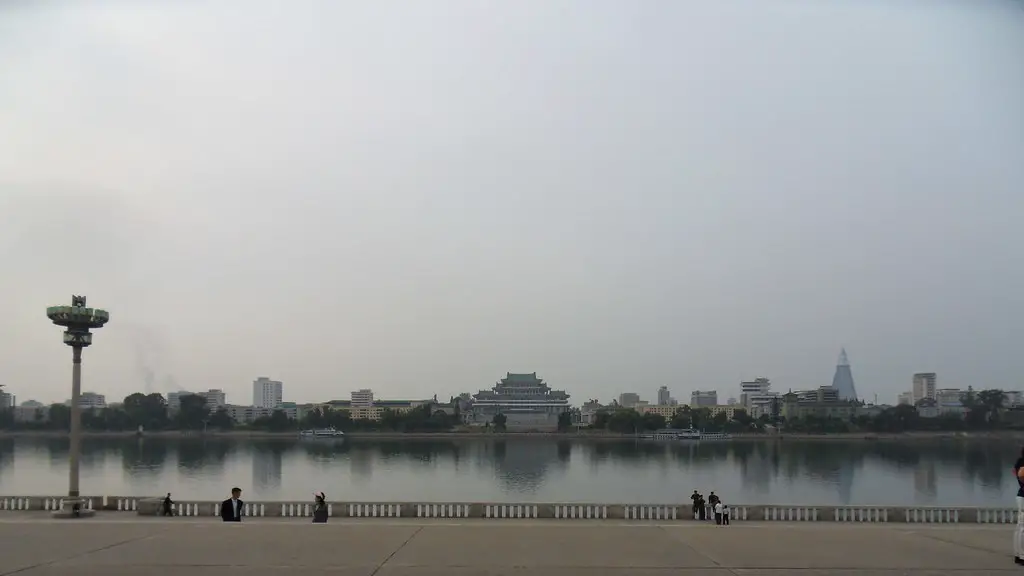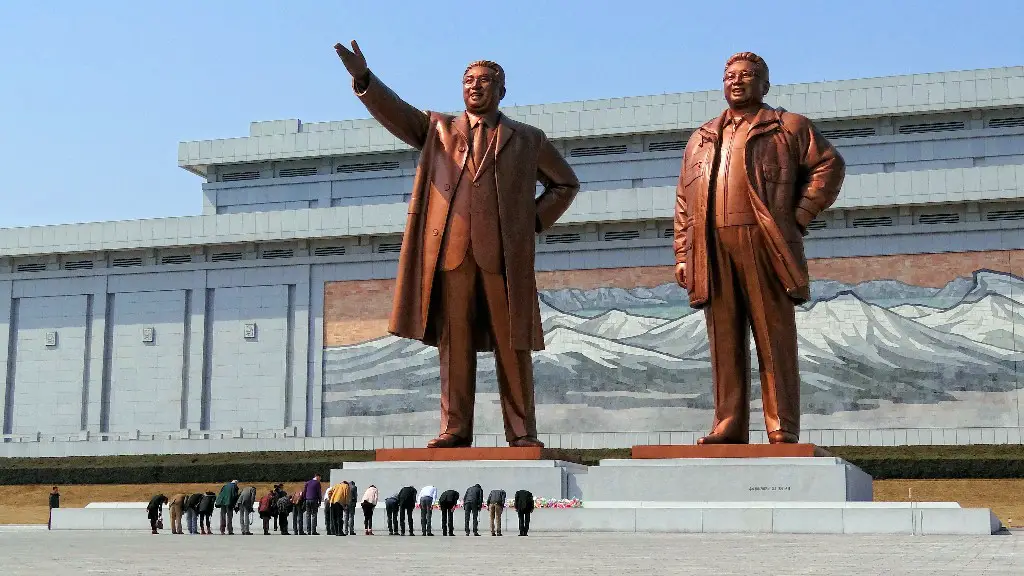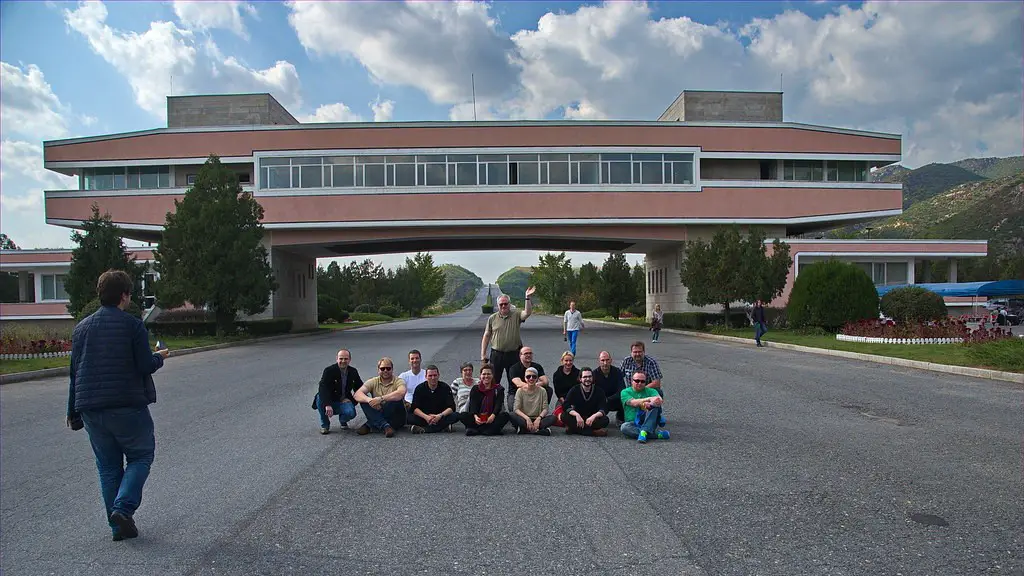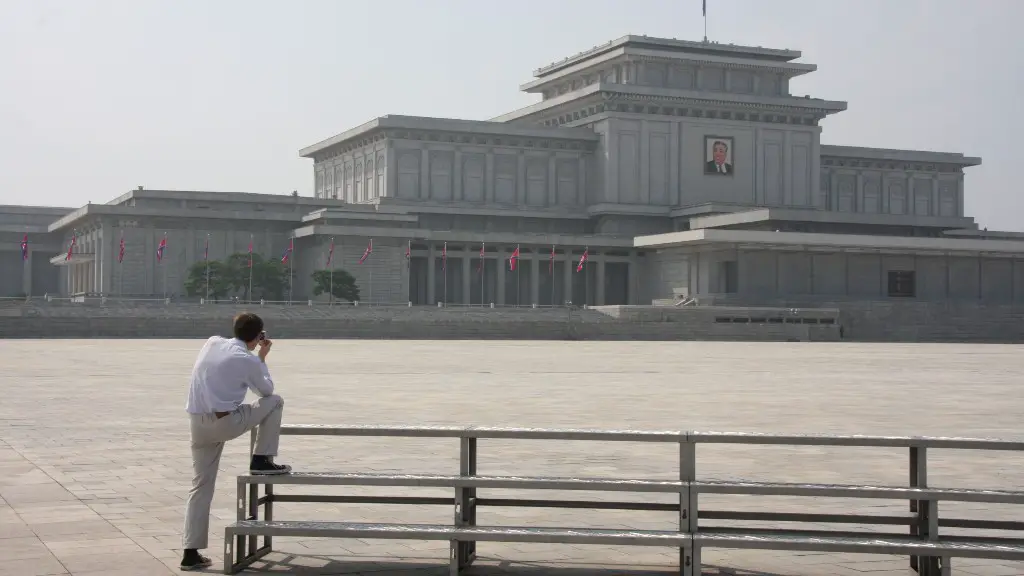Background Information
North Korea is an isolated country, situated between Russia and China. It has been considered an enemy state by many countries around the world for decades and it’s varied human rights violations have been the subject of international criticism for a long time. Despite the United Nations’ current sanctions against North Korea, the country has been successful in developing advanced nuclear technology.
Steps to Nuclear Capability
The country’s efforts to gain nuclear capability began in the early 1980s and have been progressing steadily ever since. North Korea has a long history of nuclear research and development and in the 1990s, it reached out to other countries to purchase, test, and develop nuclear weapons. In the early 2000s, North Korea’s government began announcing that they had the capabilities to launch rockets carrying portable nuclear devices. After multiple UN treaties and sanctions, North Korea tested its first nuclear bomb in 2006 and since then, has conducted five more successful detonations.
North Korean Nuclear Program
North Korea has an estimated 90-110 nuclear warheads and has revealed that it is in possession of highly enriched uranium and plutonium, both of which are necessary materials for a successful nuclear device. This shows that North Korea’s nuclear capabilities are far more advanced than previously thought and experts believe it could already have enough material for up to 30 bombs.
Financial Costs
North Korea’s nuclear capabilities come at a high cost. The financial cost alone can range from tens to hundreds of millions of dollars, depending on the complexity and the size of the bomb being developed. Additionally, according to multiple surveys, the other costs of testing nuclear weapons and developing the technology include damaging public health and the environment, disruption of the political dynamics of the region and economic instability due to increased military spending.
International Reactions
North Korea’s nuclear capabilities and successive tests have been met with a variety of responses from the international community. Some countries, such as Russia and China, have chosen to remain neutral, while some have declared their support for the North Korean government. Other countries, however, have condemned North Korea’s actions and uttered warnings and threats of military action if the country does not denuclearize.
US Response
The US has been at the forefront of nuclear disarmament efforts for a long time. It has enforced harsh economic sanctions against North Korea and has also threatened military force if the country does not give up its nuclear capabilities. The US is also known to have taken a hard stance against the North Korean government in diplomatic negotiations, repeating the message that it will not tolerate any nuclear weapons on the Korean Peninsula.
International Negotiations
Despite the US’ hard stance, international negotiations with North Korea have seen some progress in recent years. The US and other stakeholders in the region have reached out to North Korea in friendlier tones, offering some concessions if the country complies with requests to denuclearize. In 2018, North Korea and its leader Kim Jong Un attended a historic summit with the US and made pledges to denuclearize and to cease further tests.
UN Sanctions
The United Nations has been a consistent opponent of North Korea’s nuclear ambitions and has issued sanctions against their government numerous times. These sanctions have sought to cut off North Korea’s access to nuclear material, technology and funding for its programs. The most recent UN sanction, issued in 2017, imposed a freeze on exports of North Korean products and slashed its annual export revenue by a whopping 90 percent.
North Korean Nuclear Program and Public Opinion
The North Korean public has few resources to gain reliable information and what media they get access to is heavily censored. Therefore, the opinion of citizens lags behind public opinion in other countries. An opinion poll conducted by the South Korean Asan Institute for Policy Studies found that 54% of participant respondents were in favor of a gradual denuclearization, while 28 percent said the government should completely abandon its weapons program.
North Korean Nuclear Program and Global Security
North Korea’s nuclear capabilities have put global security at risk. The country’s current level of technology has the potential to reach as far as North America, leaving many countries and their citizens vulnerable to a nuclear strike. Additionally, the presence of nuclear weapons in North Korea has given the country greater diplomatic power, which it has used to provocative and aggressive actions towards its neighbors.
China’s Role in North Korea’s Nuclear Capability
China’s role in North Korea’s nuclear capabilities is a complicated one. Despite China condemning North Korea for its nuclear ambitions, there are reports that the country’s involvement with North Korea has gone beyond compliance with UN sanctions. Recent news reports suggest that China has allowed North Korea to access some financial resources, probably to fund its nuclear activity, as well as providing components of partly developed nuclear weapons.
Impact of US Sanctions on North Korea
The US has imposed sanctions on North Korea since 2008, but the most significant of these came in 2017, when the US declared a ban on all exports and imports of North Korean goods. This ban has had a devastating effect on North Korea’s economy and its citizens, with the export ban leading to a 50 percent decrease in the country’s export revenue in 2018. At the same time, the US’ maximum pressure campaign has also had an effect on North Korea’s nuclear ambitions, with the country refraining from any tests for a period of several months in 2018.
Impact of Nuclear Capability on North Korea’s International Relationships
North Korea’s nuclear capabilities have had an effect on its international relationships, first and foremost with the US. Although North Korea has developed these weapons as a deterrence against an attack from its enemies, its capabilities have resulted in the US taking a hostile stance towards North Korea, instead of pursuing a peaceful diplomatic solution. Furthermore, the proliferation of nuclear weapons in the region has also brought greater attention to the security situation in East Asia, with countries in the region now more cautious than ever with regards to their relationship with North Korea.
Effects on Regional Stability
Nuclear capabilities in North Korea have also had an effect on regional stability. North Korea’s nuclear tests have been decried by numerous countries around East Asia and have increased tensions between North Korea, Japan and South Korea. Moreover, there has been an increase in military drills and joint military exercises in the region between Japan, South Korea and the US in response to North Korea’s nuclear capabilities.
North Korean Nuclear Program and Global Economy
North Korea’s nuclear ambitions have had an effect on the global economy as well, through increased military spending and economic uncertainty in the region. Global investors have always been cautious when it comes to the economic situation in countries with questionable international relations, and the risk posed by North Korea’s nuclear capabilities has only cemented this. This has had a knock-on effect on the global economy and various countries that rely on trade with countries in the region.



